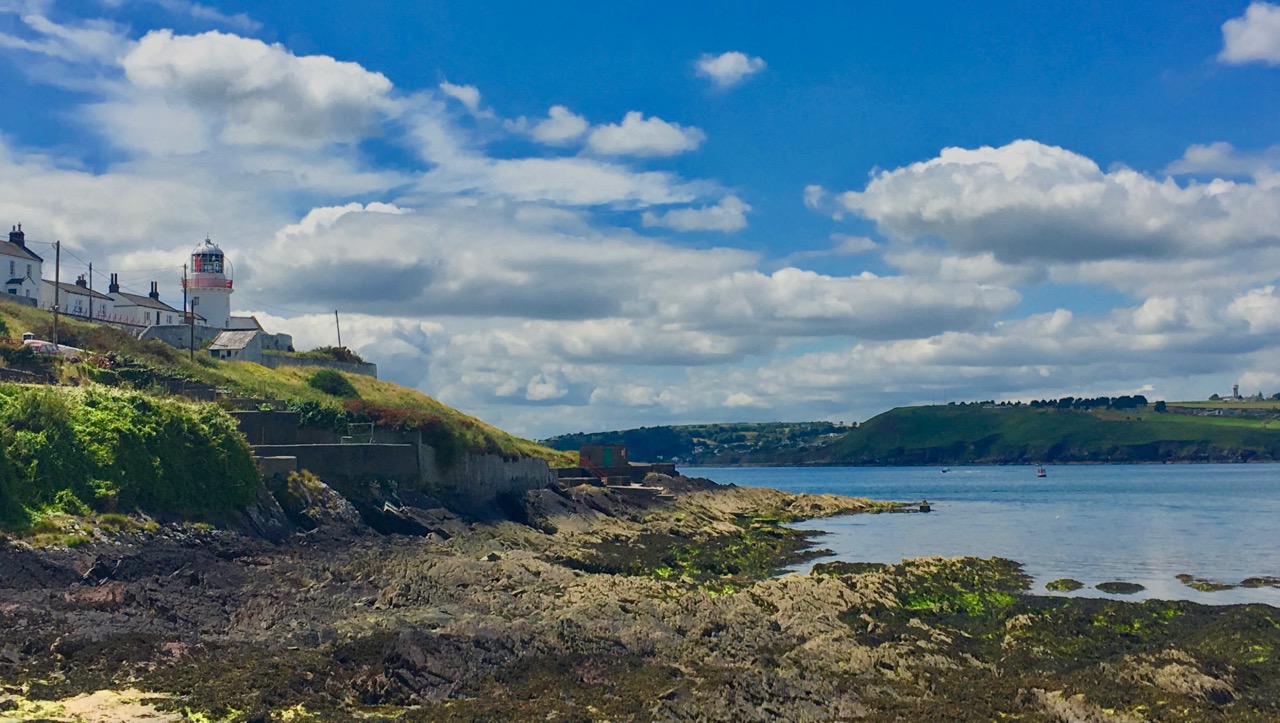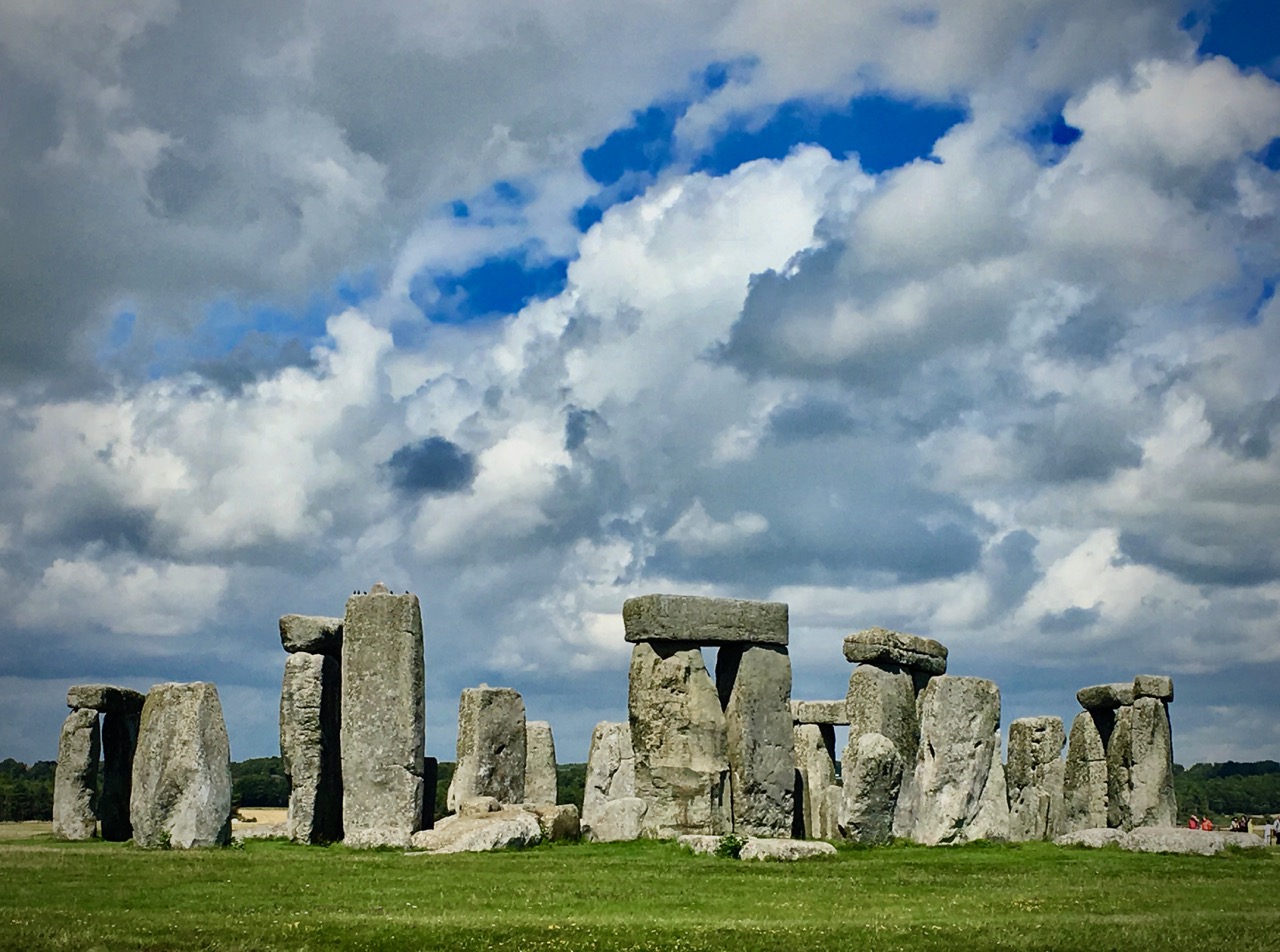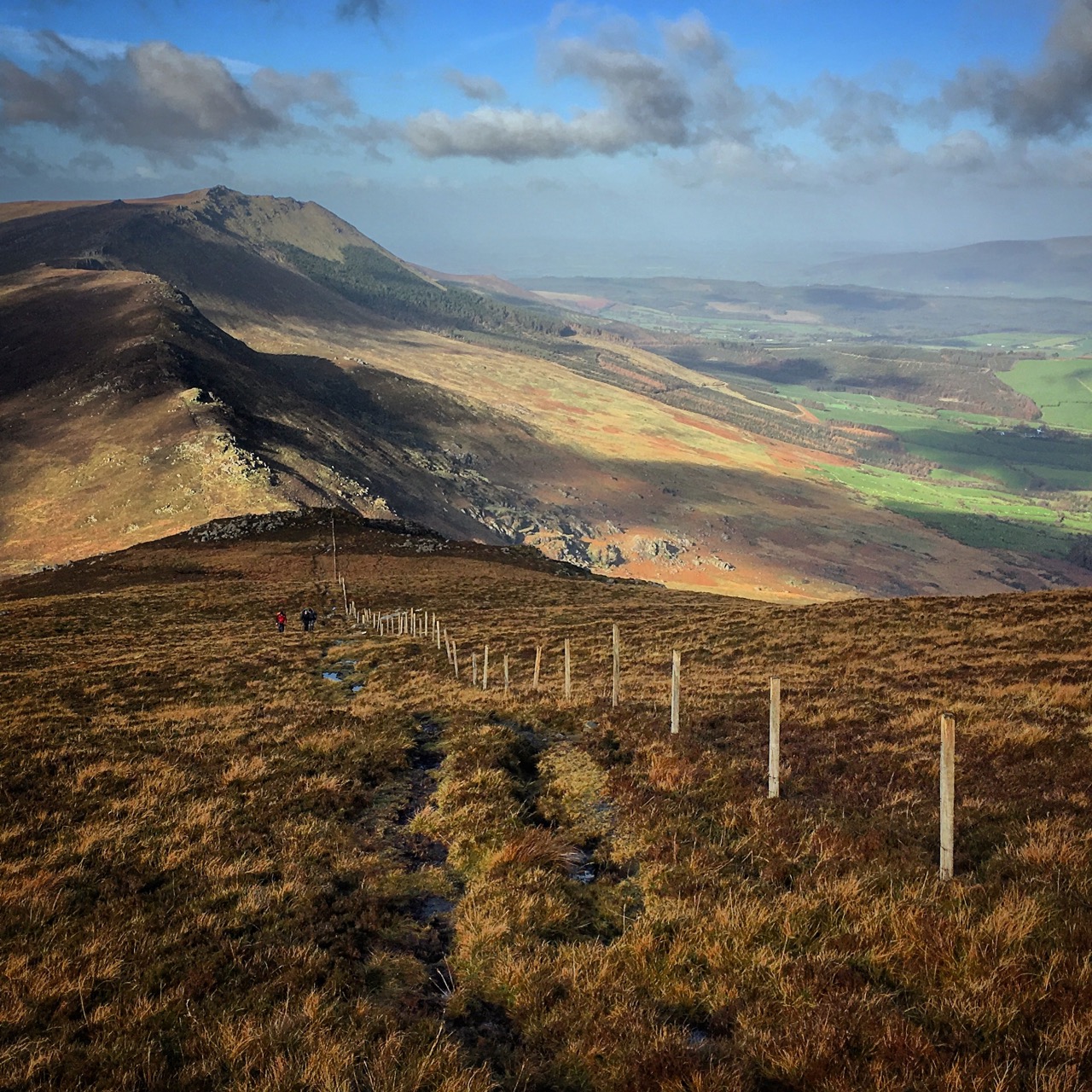Ten Years Ago (2008)
This is the year where the Global Financial Crisis came to a head. After months of worries about the state of the global economy, investment bank Lehman Brothers went bankrupt, stock markets collapsed, inter-bank lending was frozen and governments around the world were forced to bailout failing banks. Barack Obama is elected President of the USA. The Large Hadron Collider is officially opened. SpaceX Falcon 1 became the first privately developed launch vehicle to achieve orbit. 11 mountaineers die while attempting to climb K2. Ireland: Brian Cowen is elected Taoiseach following the resignation of Bertie Ahern. Ireland votes No to Lisbon Treaty. The Irish Eurovision entry that year is a turkey.
Twenty Years Ago (1998)
US President Bill Clinton is impeached following revelations of an affair with Monica Lewinsky in the White House. The Second Congo War begins, killing upwards of five million people over the following years. India and Pakistan raise the geopolitical temperature by testing multiple nuclear weapons. Al Qaeda bombs US embassies in Kenya and Tanzania. Hurricane Mitch kills 18,000 people after making landfall in Central America. The International Criminal Court comes into being; the United States and China vote against it. Chilean dictator Augusto Pinochet is placed under house arrest in the UK. The first modules of the International Space Station are launched into space. Evidence is presented that the universe is expanding at an accelerating rate. Google Inc. is founded. The movie Titanic wins 11 Oscars. Ireland: The Good Friday Agreement is signed, bringing to a close the 30 year Troubles in Northern Ireland. In August, dissident Republicans explode a bomb in Omagh, Co. Tyrone, killing 29 people. Death of “Father Ted” funnyman Dermot Morgan in London. Olympic swimmer Michelle Smith is banned for 4 years following drug tampering allegations.
Thirty Years Ago (1988)
The Soviet Union begins a program of perestroika (restructuring) which ultimately leads to its breakup. There are mass protests in Czechoslovakia, Hungary and Estonia this year. 167 workers are killed in the Piper Alpha Platform Disaster in the North Sea. Pan Am Flight 103 explodes over Lockerbie in Scotland, killing 243 passengers, 16 crew members and 11 people on the ground. The Iran-Iraq War ends, having killed 1 million people in the previous 8 years. Terrorist organisation Al Qaeda is founded. The Space Shuttle flies again after a two year pause in operations following the Challenger disaster. The Soviet Union launches a rival Buran space shuttle. It only makes one flight. George HW Bush is elected US President. Death of singer Roy Orbison. The Phantom of the Opera opens in Broadway. Ireland: British soldiers kill three IRA activists in Gibraltar. At their funeral in Belfast, UDA terrorist Michael Stone kills several mourners. During funeral procession, two British corporals are caught and killed by the IRA. The European Court of Human Rights makes a ruling against Ireland, asserting that its anti-homosexuality laws are unlawful.
Forty Years Ago (1978)
Pope John Paul I is elected and dies 33 days later. He is succeeded by Pope John Paul II, the first non-Italian pope since 1523. Spain formally ends 40 years of military dictatorship. The Jonestown massacre – over 900 members of Jim Jones’ People’s Temple cult take cyanide and die. Serial killers Ted Bundy and John Wayne Gacy are arrested. Film director Roman Polanski flees the US after pleading guilty to sexual abuse. The first Global Positioning Satellite, NavStar 1, is launched. The first ascent of Mount Everest is made without supplementary oxygen. The first radio episode of The Hitchhiker’s Guide to the Galaxy is aired on BBC Radio 4. First airing of the US soap opera “Dallas”. The film musical “Grease”, starring John Travolta and Olivia Newton John, is released. Louise Brown becomes the world’s first baby born via IVF. Ireland: Rose Dugdale and Eddie Gallagher become the first people in Ireland to marry in prison. Thousands of people march in Dublin in opposition to the building of civic offices in Wood Quay, a historical Viking site. Ireland’s second TV channel, RTE 2, is launched. Cork Regional Hospital (now Cork University Hospital) is opened. Dublin Institute of Technology is opened.
Fifty Years Ago (1968)
The Vietnam War is in full swing. The North Vietnam launches the Tet Offensive, a sustained wave of surprise attacks against South Vietnamese and US allied forces. Reports of atrocities, including the My Lai massacre and the execution of Nguyen Van Lem, lead to widespread dissatisfaction in the US about the war. Civil rights leader Martin Luther King Jr. is assassinated in April. Democratic presidential candidate Robert Kennedy is assassinated in June. Richard Nixon becomes US President in November. The Prague Spring: liberal reforms in Czechoslovakia are suppressed by a massive show of force from Soviet-allied countries. A massive wave of strikes and protests hits France, momentarily bringing the country to a halt. Enoch Powell makes his Rivers of Blood speech. Intel Corporation is founded. Premieres of 2001: A Space Odyssey, Planet of the Apes and Oliver!. Apollo 8 enters orbit around the Moon, taking the iconic Earthrise shot. Ireland: Aer Lingus flight 712, en route from Cork to London, crashes off the coast of Wexford. A civil rights march in Derry is violently broken up by police, kickstarting The Troubles over the following years. John F Kennedy Arboretum, the University of Ulster, Coleraine and Cork County Hall are opened.
Sixty Years Ago (1958)
The European Economic Community (present day European Union) comes into being. The Great Leap Forward begins in China. Millions die of famine from subsequent agricultural and economic mismanagement. France’s Fifth Republic is established. 22 people, including 8 members of the Manchester United team, are killed when their plane crashes in Munich. Imre Nagy, leader of the Hungarian uprising, is executed. Britain’s first motorway is opened. The Lego brick is patented. NASA and the Federal Aviation Administration are founded. America launches its first satellite, Explorer 1. Frank Kilby demonstrates the first working integrated circuit (aka silicon chip). The Jim Henson Company (Muppets Inc.) is established. The Lituya Bay megatsunami occurs in Alaska, reaching a height of 525 metres. Ireland: The world record for the fastest mile is broken by Herb Elliott in Santry Stadium. Brendan Behan publishes Borstal Boy. It is quickly banned in Ireland. The Harcourt Street railway line in Dublin is closed.
Seventy Years Ago (1948)
The Marshall Plan is signed by Harry Truman, providing 13 billion dollars in war aid to 16 countries. The Soviet Union blockades western Berlin, leading to a US-lead airlift of supplies into Berlin for most of the following year. Mahatma Gandhi is assassinated. Communists take power in Czechoslovakia. The Soviet Union builds its first ballistic missile. Israel declares independence and is immediately invaded by Egypt, Jordan, Syria and Iraq. Burma (Myanmar) and Sri Lanka gain independence from Britain. South Korea and North Korea are established as separate political entities. The Universal Declaration of Human Rights is formally adopted. Apartheid rule begins in South Africa. British Railways and Britain’s National Health Service are established. The World Health Organisation comes into being. Ireland: John A Costello is elected Taoiseach. Ireland passes the Republic of Ireland Act, officially severing all ties to the British state.
Eighty Years Ago (1938)
Adolf Hitler assumes overall control over the German Armed Forces (Wehrmacht). German troops occupy Austria. British Prime Minister Neville Chamberlain returns from talks with Hitler in Munich, declaring “peace in our time”. The following day, Nazi Germany invades Czechoslovakia. Kristallnacht: Jewish businesses, homes and synagogues are looted and vandalised across Germany, with thousands of Jewish men arrested. Vast reserves of oil are discovered in Saudi Arabia. Chinese Nationalists flood the Yellow River in an attempt to halt the Japanese Invasion of China. Otto Hahn observes nuclear fission in uranium. Superman first appears in American comic books. The Beano comic appears in the UK. The ballpoint pen is invented by Lazlo Biro. DuPont Company announces a new synthetic material called “nylon“. A massive meteorite explodes over Chicora, Pennsylvania. Orson Welles’ radio show “War of the Worlds” is aired, to considerable consternation. South African fishermen catch a coelacanth – an ancient fish long believed extinct. Ireland: Douglas Hyde becomes Ireland’s first president. The Royal Navy hands over to the Government of Ireland the Treaty Ports of Spike Island (Cobh), Bearhaven and Lough Swilly. Douglas Corrigan flies from New York to Ireland; supposedly he had made a navigational mistake having intended to fly to California instead.
Ninety Years Ago (1928)
Alexander Fleming accidentally discovers penicillin. John Logie Baird transmits a television signal from London to New York. New York station W2XB pioneers regular television programmes. The voting age for women in the UK is reduced from 30 to 21. Josef Stalin introduces mass collectivisation in the Soviet Union. The first flight across the Pacific Ocean is made from California to Australia. Herbert Hoover is elected US president. Ireland: The first non-stop fixed wing transatlantic flight from Europe to North America takes off from Baldonnell airfield. For the first time, Irish pound notes and Irish coinage are introduced. The Gate Theatre in Dublin is founded.
One Hundred Years Ago (1918)
This is the year of the 1918 Flu Pandemic. It wreaks havoc across the globe, eventually killing an estimated 50 million people. World War I comes to a close. After the withdrawal of Russia from the war and the failure of the German Spring Offensive on the Western Front, Allied forces launch a counter-offensive that breaks through the Hindenburg Line. German sailors mutiny in Kiel. On November 11, Germany signs an armistice agreement. Kaiser Wilhelm II abdicates. The Austro-Hungarian Empire is broken up. Poland, Czechoslovakia and Hungary become independent republics. Moscow is reinstated as the capital of Russia. The Tsar of Russia is executed along with his family. Britain assumes government over Palestine. Women over 30 years old are allowed to vote in the UK. Iceland declares independence from Denmark. The Royal Air Force is established. Death in jail of Gavrilo Princip, the assassin who sparked World War I. The first pilotless drone, the Hewitt-Sperry Automatic Airplane, is flown. The brightest nova of the 20th Century (V603 Aquilae) is observed. Ireland: US troopship SS Tuscania is torpedoed off the coast of Antrim. There is a general strike against conscription in Ireland. The RMS Carpathia, the ship that rescued the Titanic survivors, is sunk by a U-Boat off the coast of Cork. Death of John Redmond, Irish Nationalist leader. The Irish mailboat RMS Leinster is torpedoed – 500 people are killed. The British Government in Ireland issues a proclamation banning Sinn Fein, the Gaelic League, Cumann na mBan and the Irish Volunteers. Sinn Féin win a landslide victory the Irish General Election. They promise to set up a government in Dublin instead of taking their seats in Westminster. Constance Markievicz becomes the first woman to be elected to the British House of Commons.
Two Hundred Years Ago (1818)
US General Andrew Jackson invades Florida in the First Seminole War. The 49th line of latitude North (49th Parallel) becomes the official line of demarcation between the United States and British North America (Canada). Illinois becomes the 21st State of America. Chile is declared an independent republic. The British East India Company defeats the Maratha Empire, effectively resulting in British domination of India. Mary Shelley’s book Frankenstein is published. The Christmas Carol “Silent Night” is composed. Karl Marx is born in Trier, Germany. 1818 Occultation: the planet Venus moves in front of Jupiter as seen from Earth. Such a phenomenon will not occur again until 2065. Ireland: Ireland is in the grip of a severe typhus epidemic. Down Cathedral is restored. The General Post Office (GPO) on Sackville Street, Dublin, is opened.
Three Hundred Years Ago (1718)
The US city of New Orleans is founded. Pirates Edward Teach (Blackbeard) and Stede Bonnet wreak havoc in the Caribbean. By the end of the year, they are both dead. The War of the Quadruple Alliance is declared when Britain, France, the Low Countries and Austria join together to quell Spanish territorial ambitions. The Hapsburg Kingdom of Serbia is proclaimed under the governorship of Johann O’Dwyer. François-Marie Arouet adopts the name “Voltaire”. Death William Penn, founder of Pennsylvania. Edmund Halley discovers the proper motion of fixed stars. The first textbook on probability theory is published by Abraham de Moivre. Ireland: Scots-Irish migrations to America begin. The Jervis Street Hospital is founded in Dublin. It is now part of the Jervis Street Shopping Centre.
Four Hundred Years Ago (1618)
Battle lines in the Thirty Years War are drawn after Catholic representatives of Archduke Ferdinand II of Austria are thrown out of a window by a Protestant mob in Prague Castle. The war will devastate central Europe, resulting in over eight million deaths. Sir Walter Raleigh is beheaded in Westminster after his men attacked a Spanish outpost in Guyana. He was executed as this incident broke a pardon agreement previously agreed with King James I. Three comets appear in the sky this year. Johannes Kepler discovers his Third Law of Planetary Motion. Ireland: The Plantation of Ulster continues.
Five Hundred Years Ago (1518)
King of Spain Charles V grants permission to send 4000 African slaves to the New World. This marks the start of what was to become a vast transatlantic slave trade. Martin Luther’s 95 Theses are translated into German. Within weeks, his writings have spread across Europe. A dancing plague hits the Strasbourg region. Major European powers sign a non-aggression pact in response to growing Ottoman power. Spanish Conquistador Juan de Grijalva lands in Mexico. The first epidemic of smallpox hits the New World. Albrecht Dürer etched “The Cannon“, his largest etching. Ireland: The young Archduke Ferdinand visits Kinsale and describes in vivid detail the strange attire of the local Gaelic townspeople.
Six Hundred Years Ago (1418)
The Council of Constance comes to a close. This brought the papacy together again under one pope (Martin V), based in Rome. In the Hundred Years War, Paris is captured by the Duke of Burgundy as more of France succumbs to English rule. The Vietnamese Emperor Lê Lợi leads a major revolt against the Chinese Ming Dynasty. Chinese admiral Zheng He reaches Malindi in Kenya. Filippo Brunelleschi wins the competition to build the Dome of Florence Cathedral by balancing an egg on smooth marble. The island of Porto Santo in Madeira is discovered by Portuguese explorers. Ireland: The Great Book of Lecan is completed.
Seven Hundred Years Ago (1318)
King Robert the Bruce of Scotland re-takes the strategic town of Berwick-on-Tweed after a long siege. A man purporting to be King Edward II turns up at royal court. He is arrested, blames his pet cat, and is executed. Ireland: King Robert’s brother Edward the Bruce is killed at the Battle of Faughart in Co. Louth. This puts an end to the devastating Bruce Campaign in Ireland.
Eight Hundred Years Ago (1218)
Armies of the Fifth Crusade attack the Egyptian city of Damietta. The central Asian empire of Qara Khitai is defeated by Genghis Khan.
Nine Hundred Years Ago (1118)
The Muslim Almoravids lose control of the Spanish city of Zaragoza to Christian armies. Henry I of England finds himself in deep trouble in Normandy, when many of his barons rise up against him. Death of Baldwin I, first crusader king of Jerusalem. John II Komnemos becomes the Byzantine Emperor.
One Thousand Years Ago (1018)
King Cnut the Great accedes to the Danish throne, bringing the Kingdoms of Denmark and England together. Malcolm II defeats the Northumbrians to become the first king of a united Scotland. The First Bulgarian Empire ceases to exist – it will now form part of the Byzantine Empire. The Battle of the River Bug takes places between the Duke of Poland and the Prince of Kiev. Count Dirk III of Holland beats a much larger Holy Roman Empire army at the Battle of Vlaardingen.
One Thousand One Hundred Years Ago (AD 918)
The Kingdom of Goryeo was founded. This kingdom gives its name to the modern name “Korea”. Vikings under Ragnall ua Ímair defeat a Scottish army in Northumbria. Æthelflæd, the ‘Lady of the Mercians’, dies in a battle with the Vikings in Tamworth. Ireland: Sitric Caoch the Viking becomes king of Dublin.
One Thousand Three Hundred Years Ago (AD 718)
The Second Siege of Constantinople ends in disaster for the Arab Caliphate. Pelagius founds the Christian kingdom of Asturias in Spain. Charles Martel “The Hammer” becomes de facto king of the Franks.
One Thousand Four Hundred Years Ago (AD 618)
Emperor Gaozu founds the Tang Dynasty in China. Songtsen Gampo founds the Tibetan Empire. Ireland: Death of St Kevin of Glendalough.
One Thousand Five Hundred Years Ago (AD 518)
The illiterate Justin I founds the Justinian Dynasty in Byzantium after the death of Anastasius I.
One Thousand Six Hundred Years Ago (AD 418)
Theodoric I becomes the King of the Visigoths. The Council of Carthage confirms St Augustine’s Doctrine of Original Sin.
One Thousand Nine Hundred Years Ago (AD 118)
Building work starts on the Pantheon in Rome. A mural of a man with a wheelbarrow is painted in Sichuan, China. It is the earliest known depiction of this device.
Two Thousand Years Ago (AD 18)
Emperor Tiberias grants Germanicus command over the Eastern Roman Empire.



































